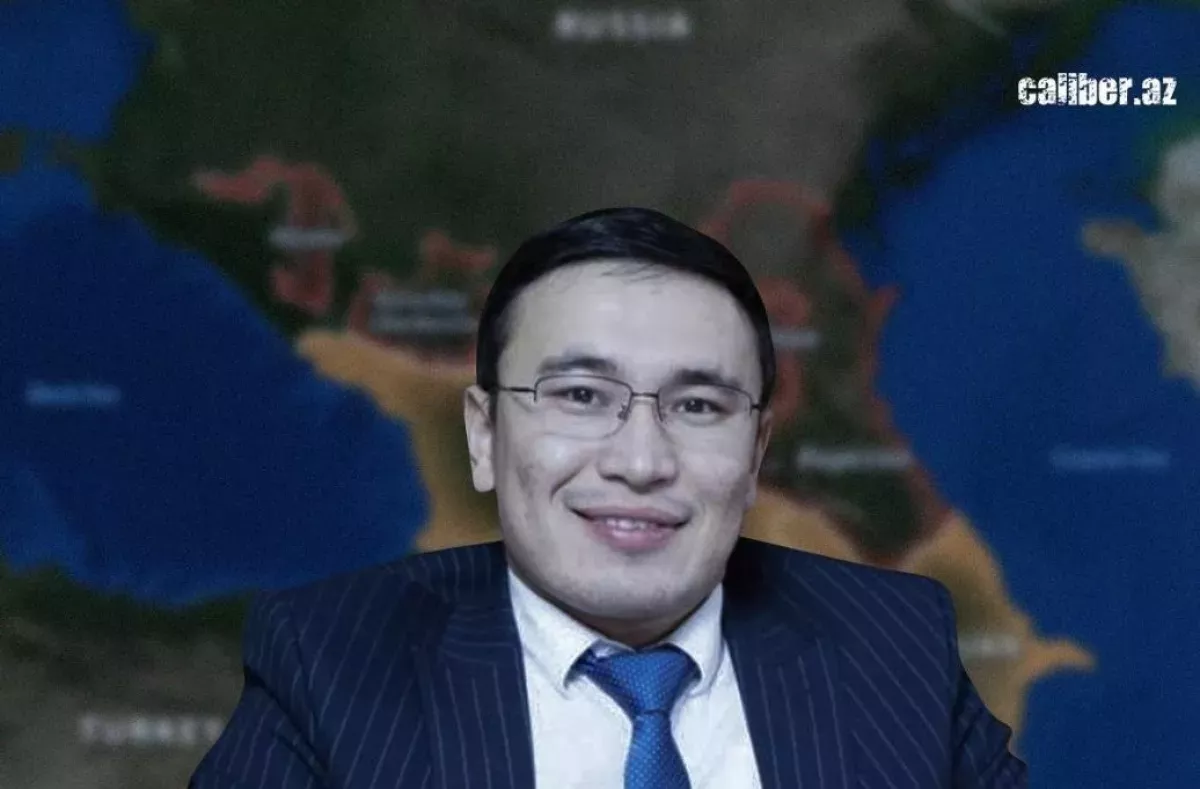What’s at stake for Armenia if EU accession moves forward? Expert opinions on Caliber.Az
Recently, the Armenian Parliament approved the draft law "On Initiating the Process of Accession to the European Union", a move that has sparked mixed reactions both in Russia and within Armenia itself. Back in January, when the Armenian government first approved the bill, the Kremlin warned that this step could pose serious problems for Armenia, as it is impossible to be a member of both the Eurasian Economic Union (EAEU) and the EU simultaneously. Russian Deputy Prime Minister Alexey Overchuk even stated that Moscow views this legislative initiative as the beginning of Armenia’s withdrawal from the EAEU, comparing Yerevan’s decision to buying a ticket for the Titanic.
At what point might Russia take a firm stance on Armenia’s EU accession process and demand a clear choice? To explore this question, a Caliber.Az correspondent reached out to experts from EAEU member states.
According to Russian political analyst and economist Renat Savin, Pashinyan continues to test Russia’s patience, seemingly confident that Armenia will get away with it.

"Let’s take a look at Pashinyan’s statement—he appears to be in a state of political relaxation. For instance, he claimed that the law passed by the Armenian Parliament to initiate the process of joining the EU does not increase risks in relations with the EAEU and Russia but rather makes many of these risks 'more manageable.' Completely ignoring the concerns expressed by some members of his own faction, Pashinyan is clearly convinced that he has the situation under control. He also appears unbothered by warnings from the Russian side, which has repeatedly stated at various levels that Armenia’s accession to the EU would inevitably mean leaving the EAEU. The Russian State Duma has also made it clear that Armenia 'won’t be able to sit on two chairs'—a direct warning to Yerevan. Yet, Pashinyan remains oblivious.
Although some experts are convinced that full integration with the EU would devastate Armenia’s market, simply because it would have to overhaul its entire economy, fundamentally rethink its export and import policies, and make drastic adjustments in key industries vital to the country. This includes Armenian exports of ores and chemical products. Even selling cognac and tobacco in the EU market would become a battle for Yerevan, as it would have to negotiate quotas—does Armenia really need such a headache? And there is a strong sense that Pashinyan has not thought these issues through at all.
Armenia’s economy is, to put it mildly, unprepared for EU accession. If it were to enter economic integration with the EU, it would inevitably have to cut off the flow of grey-market transit exports to Russia—something Brussels would demand even before Armenia officially became an EU member. In fact, Washington has already made this a condition, as outlined in the signed Charter on Strategic Partnership between Yerevan and Washington. Under this agreement, the two sides must establish a special commission to monitor dual-use goods being exported from Armenia to Russia.
This is no game—it is a binding commitment. If Armenia fails to comply or attempts to stall, this condition could easily be turned into a political weapon against Yerevan and a justification for U.S. sanctions. And the reality is that Trump is not Biden—he could respond to any Armenian defiance swiftly and harshly. For now, Yerevan is shielded by the fact that the Trump administration is still untangling Biden’s policy legacy, but sooner or later, questions will arise.
On the other hand, it is also quite clear that Russia may soon issue a firm ultimatum to Yerevan and start revoking customs privileges for Armenian goods. If that happens, Armenia will immediately feel the impact, and its parliament will increasingly discuss the impracticality of EU accession—not as a suggestion, but as a demand to halt the process before a full-scale economic disaster unfolds.
Pashinyan believes that, if necessary, he can slam the brakes just before the cliff’s edge and reverse course. However, the time for Yerevan to make fundamental decisions has already arrived, and he may soon find himself caught between a rock and a hard place. Let’s not forget 2020, when Pashinyan tried to test Baku’s patience—and ended up paying the price,” Savin notes.

Kazakh political analyst Azat Akhmetov believes that Pashinyan is most likely bluffing, as it is quite obvious that the EU has no real intention of accepting Armenia.
"It is practically evident—and widely understood—that leaving the EAEU would immediately deal a severe blow to Armenia. Export revenues would plummet, and Armenian migrant workers would become the primary passengers on outbound flights from Russia to Armenia. Such a collapse would be unsustainable for Armenia and could even lead to an increase in Russian influence, a weakening of Pashinyan’s government, or even a coup.
Nikol Pashinyan does not need such challenges—he is well aware of the consequences Ukraine faced from its 'Euro-integration romance.' However, he still believes he has room to manoeuvre. By escalating tensions, staging the illusion of negotiations with Brussels, and fueling friction with Russia, Pashinyan is merely fulfilling the promises made to him by the West.
This conclusion is obvious, as we fully understand that Yerevan never acts without expecting dividends in return. And it seems those dividends and bonuses from Brussels have been promised to Pashinyan behind closed doors during negotiations.
Brussels is clearly playing along with Yerevan—it’s evident that Europe sees this game and Armenia’s use of Russia as leverage as an effective tool to pressure Moscow. At the same time, they fully understand that Armenia will not be joining the European Union anytime soon, at least not in the next decade.
For now, Yerevan is continuing this game and amplifying the narrative, but very soon, it will have to slam on the brakes and start looking for excuses," Akhmetov concluded.








